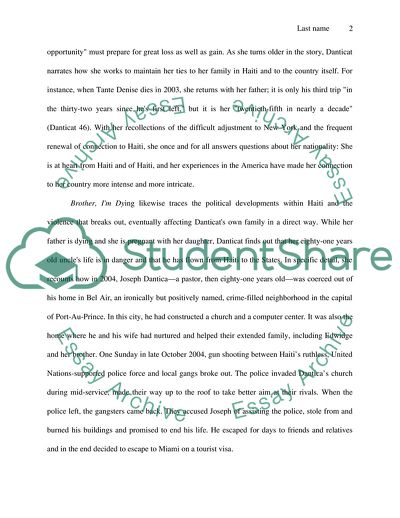Brother, Im Dying by Edwidge Danticat Book Report/Review Example | Topics and Well Written Essays - 1500 words. https://studentshare.org/literature/1719658-book-review-of-brother-im-dying
Brother, Im Dying by Edwidge Danticat Book Report/Review Example | Topics and Well Written Essays - 1500 Words. https://studentshare.org/literature/1719658-book-review-of-brother-im-dying.


